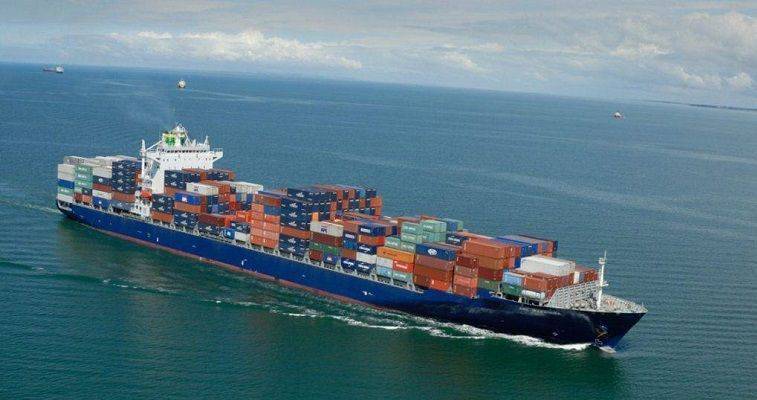Kostas Melas: Why Germany targeted Greek shipowners
28/07/2020
In the last decade, Germany became one of the countries with the largest privately owned merchant fleets in the world. Specifically, it was in 4th place, after Greece, China and Japan. One of the reasons for this success was the massive inflow of funds into the ships under construction, through the financial model that became very popular in Germany in the 1990s, but reached its peak around 2004. When the market fell, many German ships were bought cheaply by Greek shipowners.
The most successful form of ship finance in the mid-1990s was the KG (Kommanditgesellschaften) limited liability company. Such a German company buys a ship from the shipyard (or the shipowner) and obtains a time charter. The acquisition price is covered in the following ways:
- First, through a bank loan, usually 50-70% of the total price.
- Secondly, with funds from large German investors and the general manager (they financed the remaining 30-50%).
By 2004, more than 600 ships had been funded by KG companies, with an average value of $ 50-100 million. At the height of this process, about 440,000 investors had invested their funds, buying shares in limited liability companies, each of which owned a ship. The stock market made the investor a partial owner of a ship. It had the possibility of full participation in the ship’s profits, but also responsibility for the liabilities of the company in their share of participation [§ 171 subsec. 1 German HGB (Commercial Code)].
The flowering period
This corporate scheme owes its prosperity to a combination of conditions:
- First, German shipyards had a very strong position in the container shipbuilding market, supported by the very strong Hamburg real estate market.
- Second, Germany had a pool of high-value individuals faced with high marginal tax rates and a capital distribution system run by small investment firms.
- Third, German banks were in an expansionary phase and were willing to provide the required loans.
Under these circumstances, the efficient and tax-profitable KG company proved to be an ideal financial vehicle. It provided offshore container vessels to German shipping groups that were outside the balance sheets.
Private investors were happy with the 8% tax return, which is why ships became the most popular investment. In 2003, this sector absorbed about 20% of the private equity raised in Germany. Limited liability shipping companies were taxed on the basis of tonnage. In other words, the tax was determined at a uniform rate and based on the tonnage and not the profitability of the ship.
Individual participation in the capital of a ship offered tax advantages and negligible obligations of the ship. This practice, however, is not a successful business venture for all times. In fact, those who invested there were looking for guaranteed higher risk-free returns.
The crisis of 2007
When the market is high, this way of financing does not create a problem. High fares and a low fixed tax rate after deducting costs have always determined positive revenue. Also, high fares meant that the ship maintained or even increased its value in the shipping market. With the shipping crisis of 2007 this type of corporate form (KG) showed that it was not solid.
Prior to 2007, 26% of world tonnage orders came from Germany and KG-type ship companies. After the crisis this percentage decreased to 2%. In 2008-9 alone, 180 such companies went bankrupt and ships were withdrawn from the market. Most of them were sold at very low prices to foreign competitors, including Greeks. I cite an example concerning a purchase by a company of Greek interests. Nasdaq-listed Diana Containerships bought two German shipping containers at a time (December 2011) when shipping fares and values were under dramatic pressure.
The purchase price – according to market participants – was then considered high. In particular, the shipping company belonging to the interests of the Greek shipowner Symeon Paliou had bought two panamax type container ships from Hamburg-Sud and at the same time had announced the securing of a loan from the Royal Bank of Scotland of 150 million dollars.
The return of business risk
The key to the deal that had led two German ships into Greek hands for $ 66 million was the need of the German shipping company for cash, which could not be secured though the exhausted German banks and the tempting long-term charter of the two ships for the Greek buyer. If the two ships (the 2001 built San Marco and the 2002 Cap San Raphael) did not have charter agreements, they would not have raised even $ 26 million. However, the German company provided contracts for 36 months, which meant for the buyer, Diana, revenue of 47.5 million dollars for those three years. In essence, the Germans were forced to carry out a paradoxical “on shore” sale and leaseback in order to strengthen their fund.
Thus, the shipping companies that operate on the basis of the perception of business risk returned to the forefront. Among them are private equity investors, many of whom are from the US (eg Oaktree). Unfortunately, the German “shipowners” in this case did not follow the German proverb concerning shipping: “Risiko ist die Bugwelle des Erfolges”, or translated into Greek: “Risk is the bow wave of success”.
It was not, however, only the acquisitions of German ships by Greeks and other foreign shipowners that in the years of the memoranda had caused the wrath of German finance minister Schauble and the German establishment in general. It was also the reduction of the work of German shipyards that build this type of ships. Orders have increasingly shifted to Chinese and South Korean shipyards since then.





